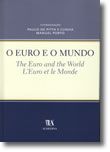
 Mad about trade : why Main Street America should embrace globalization
de
Daniel Griswold
Mad about trade : why Main Street America should embrace globalization
de
Daniel Griswold
 Solución de diferencias ante la OMC : presente y perspectivas
de
Fernando Piérola
Solución de diferencias ante la OMC : presente y perspectivas
de
Fernando Piérola
 Direitos humanos e revolução : temas do pensamento político setencentista
de
Viriato Soromenho Marques
Direitos humanos e revolução : temas do pensamento político setencentista
de
Viriato Soromenho Marques
 Teorias das relações internacionais
de
Philippe Braillard
Teorias das relações internacionais
de
Philippe Braillard
 Direito da concorrência nas comunidades europeias
de
Jorge de Jesus Ferreira Alves
Direito da concorrência nas comunidades europeias
de
Jorge de Jesus Ferreira Alves
 O descarrilamento e a regeneração do sistema monetário europeu
de
Luís Manuel de Aguiar Dias
Tese de mestrado em economia europeia na Faculdade de Economia da Universidade de Coimbra
O descarrilamento e a regeneração do sistema monetário europeu
de
Luís Manuel de Aguiar Dias
Tese de mestrado em economia europeia na Faculdade de Economia da Universidade de Coimbra
 Integração europeia : perspectivas
de
Luís Guimarães de Carvalho...[et al.]
Integração europeia : perspectivas
de
Luís Guimarães de Carvalho...[et al.]
 O euro e o mundo = The euro and the world = L'euro et le monde
de
coord. Paulo de Pitta e Cunha, Manuel Porto
O euro e o mundo = The euro and the world = L'euro et le monde
de
coord. Paulo de Pitta e Cunha, Manuel Porto
 El recurso por omisión ante el Tribunal de Justicia de las Comunidades Europeas
de
Concepción Escobar Hernández
El recurso por omisión ante el Tribunal de Justicia de las Comunidades Europeas
de
Concepción Escobar Hernández
 El procedimiento de medidas cautelares ante el Tribunal de Primera Instancia de las Comunidades Europeas
de
Blanca Pastor Borgoñon, Eric Van Ginderachter
Cuadernos de estudios europeos ; 4
El procedimiento de medidas cautelares ante el Tribunal de Primera Instancia de las Comunidades Europeas
de
Blanca Pastor Borgoñon, Eric Van Ginderachter
Cuadernos de estudios europeos ; 4
 Portugal e o futuro da União Europeia : sobre a revisão dos tratados em 1996
de
Francisco Lucas Pires
Portugal e o futuro da União Europeia : sobre a revisão dos tratados em 1996
de
Francisco Lucas Pires
 El sistema monetario Europeo
de
Sara González, Juan Mascareñas
El sistema monetario Europeo
de
Sara González, Juan Mascareñas
 O mercado interno e a circulação de mercadorias na Comunidade : contributos para o estudo do direito aduaneiro
de
Feliciano Pereira Martins
O mercado interno e a circulação de mercadorias na Comunidade : contributos para o estudo do direito aduaneiro
de
Feliciano Pereira Martins
 Europa na primeira linha : o moldar da nova mundialização
de
Pascal Lamy; prefácios de António Vitorino e de Érik Orsenna; [tradução de Duarte da Costa Cabral]
Europa na primeira linha : o moldar da nova mundialização
de
Pascal Lamy; prefácios de António Vitorino e de Érik Orsenna; [tradução de Duarte da Costa Cabral]
 A revisão do Tratado de União Europeia : contributos para a conferência intergovernamental de 1996
de
António Covas
A revisão do Tratado de União Europeia : contributos para a conferência intergovernamental de 1996
de
António Covas
 Análise da problemática da integração de Portugal no sistema monetário europeu : reunião de 23 de Abril de 1990
de
Assembleia da República
Análise da problemática da integração de Portugal no sistema monetário europeu : reunião de 23 de Abril de 1990
de
Assembleia da República
 Assegurar a convergência com a Comunidade Europeia : um objectivo da política económica do XII Governo
de
Ministério das Finanças
Assegurar a convergência com a Comunidade Europeia : um objectivo da política económica do XII Governo
de
Ministério das Finanças
 Crescimento, competitividade, emprego : os desafios e as pistas para entrar no século XXI : livro branco
de
Comissão Europeia
Crescimento, competitividade, emprego : os desafios e as pistas para entrar no século XXI : livro branco
de
Comissão Europeia
 Direito processual penal : textos de apoio às aulas práticas
de
José Lobo Moutinho
Direito processual penal : textos de apoio às aulas práticas
de
José Lobo Moutinho
 A segurança social portuguesa : problemas, realidades e perspectivas
de
Ilídio das Neves
A segurança social portuguesa : problemas, realidades e perspectivas
de
Ilídio das Neves
 O Tratado de Lisboa : génese, conteúdo e efeitos
de
Paulo de Pitta e Cunha
Primeira obra publicada em Portugal contendo a análise crítica das causas e dos principais temas do "Tratado de Lisboa" ("Tratado Reformador") e do seu papel no processo de integração europeia.
O Tratado de Lisboa : génese, conteúdo e efeitos
de
Paulo de Pitta e Cunha
Primeira obra publicada em Portugal contendo a análise crítica das causas e dos principais temas do "Tratado de Lisboa" ("Tratado Reformador") e do seu papel no processo de integração europeia.
 Contribuições para o estudo das relações entre a União Económica e Monetária e a racionalização do desenvolvimento industrial
de
José Manuel da Graça Dias
Dissertação de mestrado em Estudos Europeus apresentada em 1992
Contribuições para o estudo das relações entre a União Económica e Monetária e a racionalização do desenvolvimento industrial
de
José Manuel da Graça Dias
Dissertação de mestrado em Estudos Europeus apresentada em 1992